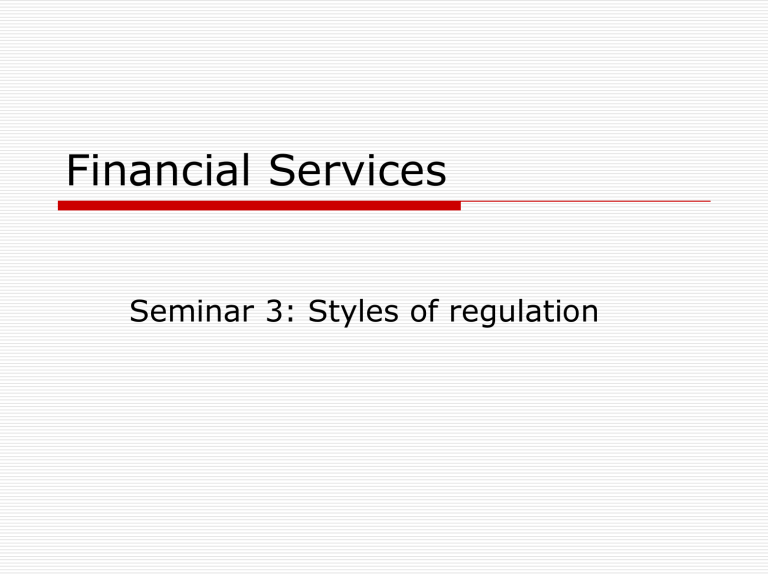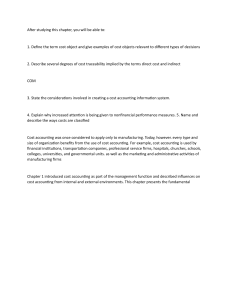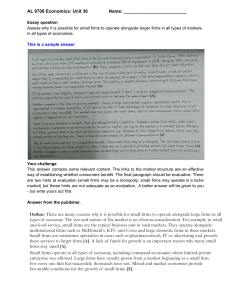
Financial Services Seminar 3: Styles of regulation INTERACTIVE QUIZ 3 Style of regulation: overview Context: regulatory discretion and style Risk-based regulation Principles-based regulation ‘Light-touch’ regulation Regulatory powers and discretion Regulatory powers Rule-making Supervision Enforcement Link to regulatory objectives Regulatory discretion For Flexibility (adapt to firms and economic cycles) Regulators are better able to make rules than legislature Against Lack of high-level political choice over risk in the financial system (cf risk vs stability trade-off) Discretion may not be used when most needed (cf the recent financial crisis) Interactive Exercise 2 https://www.bankofengland.co.uk//media/boe/files/financial-stabilityreport/2020/december-2020.pdf -What is the main responsibility of the FPC? - Which institutions are represented in the FPC? Risk-based regulation: concept Regulation applied to markets, firms and individuals according to the risks they pose to regulatory objectives Risks arise from (mainly) Credit risk (default) Market risk (fall in value of securities) Systemic risk Generic risk-control strategies Prevent Substance Prohibition Limit Remedy Risk threshold Liability standard Process ex ante Licensing ex post Enforcement: exclusion/contain ment/penalty Supervision Deterrence Negotiated correction/ penalty Enforcement:rest itution/compensa tion/penalty Risk-based regulation: operation (UK) Risk assessment and monitoring Categorisation of firms Risk mitigation programme for each firm Risk control through governance, management and financial control requirements for firms Risk control through approval and standards for individuals Risk control through capital and liquidity rules The FPC and systemic risk (Interactive exercise 3) Interactive exercise 3 https://moodle.gla.ac.uk/pluginfile.ph p/2736850/mod_resource/content/1/ Financial%20Services%20Act%20201 2.pdf What is the statutory objective of the Bank of England? What is the objective of the FPC? - How does the FPC fulfil this role? Principles-based regulation The ‘principles vs rules’ choice in regulatory systems FSA adopted the principles-based approach For Compliance with the spirit and not just the letter of rules Permits firms to interpret principles and focus on outcomes Detailed rules cannot cover all eventualities Against Principles are vague and lack certainty Firms may not interpret principles correctly Principles-based regulation may easily become ‘lighttouch’ regulation Light-touch regulation Rationale Trust in ‘self-correcting’ nature of markets Focus on innovation and flexibility for firms Focus on lowering the cost of regulation for firms Operation Trust in management strategy and decisions Non-confrontational supervision Limited enforcement action Post-crisis revision End of ‘light-touch’ policy More intensive supervision and enforcement Reading Chapter 2 Iain Macneil ‘An Introduction to the Law on Financial Investments’ Chapter 17 Principles of Financial Regulation (e-book)





